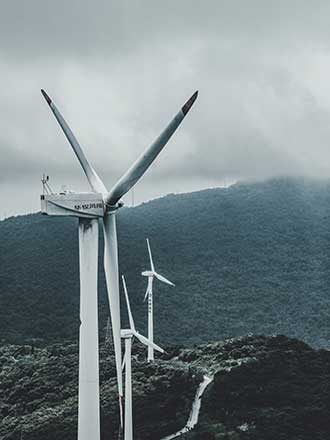EPR for Plastic
EPR Plastics: A Brief Introduction
The 2016 Plastic Waste Management Rules in India aim to reduce plastic waste and promote responsible management. The guidelines require plastic trash generators to minimize garbage, keep it segregated, and dispose of it properly. Extended Producer Responsibility (EPR) applies to plastic product manufacturers, importers, and brand owners.
EPR requires manufacturers to handle product end-of-life. The Plastic Waste Management Rules establish a framework to enhance the cycle economy of plastic packaging waste and promote new plastic replacements. The Guidelines provide additional methods for companies to switch to sustainable plastic packaging. The Guidelines mandate hard plastic packaging reuse to decrease new plastic packaging.
Failure to satisfy extended producer responsibility objectives requires environmental compensation from producers, importers, and brand owners. This reimbursement must be utilized for ecologically appropriate plastic garbage collection, recycling, and disposal. This protects, improves, and reduces environmental contamination.
India produces 25,000 tons of plastic garbage daily, which can enter the food chain and create health problems. EPR in the 2016 Plastic Waste Management Rules is a significant step in solving this challenge. Producers, importers, and brand owners must manage plastic trash. This makes plastic packaging trash more circular and promotes sustainable alternatives.
Advantages of EPR Registration for Efficient EPR Waste Management
Extended Producer Responsibility (EPR) was developed to encourage producers to assume full accountability for recycling their products' packaging over the product's entire life cycle. Doing so lessens the damage the product and its container do to the natural world.
Registrations for EPR for Plastic in Delhi have the potential to enhance the city's waste management system, which is one of its many benefits. That goal is met by equipping businesses with knowledge and resources to improve their trash collection, management, recycling, and disposal practices. Companies may do more to lessen their environmental impact if they strengthen their waste management procedures.
Furthermore, a company's market reputation might benefit from acquiring an EPR license. This is because possessing an EPR license indicates a company's dedication to minimizing environmental impact—companies who want to improve their status in today's business climate pay special attention to these restrictions. Therefore, an EPR license may boost the company's standing in the market, its image, and its worth to consumers. EPR may be used for a wide range of plastics when discussing plastics and their packaging. Some examples of these types are:
- • Category 1 consists of stiff plastic containers as well.
- • Category 2 comprises plastic bags, plastic packaging (single or multi-layer), and plastic sachets, pouches, and carry bags made of various types of plastic.
- • Category 3 consists of packages that include both plastic and non-plastic components.
- • Category 4 contains disposable plastic bags and plastic wraps that decompose in the environment.
Who Needs to Follow the EPR Plastic Waste Management Guidelines?
Every plastic producer, brand owner, manufacturer, and recycler must be registered with the relevant State Pollution Control Board or Pollution Control Committee of the Union Territory to manage plastic waste efficiently. All municipalities, Gram Panchayats, plastic manufacturers, and importers must comply with the Plastic Waste Management guidelines.
To control plastic trash, one must be responsible for
- • Reprocessing
- • Recyclability of materials
- • Recycling
- • Disposal at the end of life
- • Plastics can be collected and recovered voluntarily.
- • Annual Tax Reporting
- • Provide plastic credits as evidence of certification
To better manage garbage and safeguard the environment, Vasoo Recycle was established in 1995. After globalization, infrastructure expansion, market growth, and the telecommunication revolution, our founder felt managing waste was better than criticizing development. The E-Waste Recycling Consultants will safeguard your privacy while also assisting you in finding new uses for your outdated electronic equipment.

